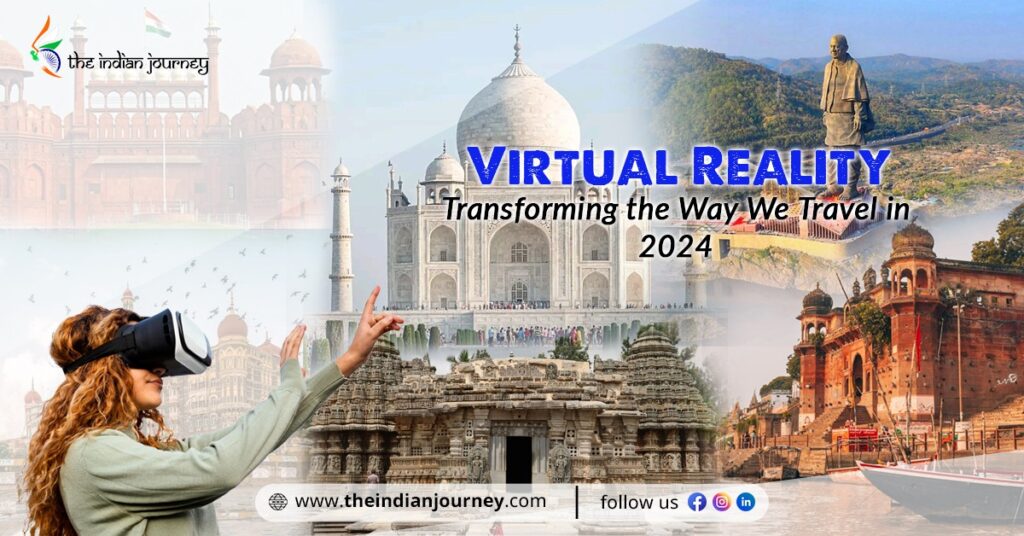In the olden days, travelling was going to unknown destinations, including exploring the destination, the way to get there, and what to do there. To ‘visit’ a new city, people would rely on bits of information from family or friends, travel magazines, books, newspapers or even phone directories. But the advent of the internet has made researching travel easier. You can get detailed information about comparative and competitive ready-made travel plans with one click.
The newest technological trend in travel is Virtual Reality (VR). VR helps us create a computer-based version of the natural environment using advanced technology, which gives us a realistic view of any place. For example, with the help of Google, VR Headsets, and cutting-edge technology, we can tour the Taj Mahal from the comfort of our beds.
Many iconic museums, art galleries, and even tourist sites offer ‘Virtual Tours’ for their locations to spark the interest of potential visitors. Hotels, Airbnb, and ship cruises also provide a virtual tour option before booking. Research shows that taking a virtual tour increases the chances of a customer making an actual booking.
Virtual Reality is changing the experience of travellers. Today, they are equipped with experience and statistical information. Thus, they can make more informed decisions regarding their travels and enjoy the maximum benefits of them.
Instead of generic travel options, companies will now be able to make precise travel plans that are most suitable to individual travellers’ likes and dislikes. This will open up more destinations for travel worldwide and increase revenue for the sector. It will also help tourists develop cost-effective travel plans.
Thus, newer technologies in Virtual Reality paired with Artificial Intelligence are transforming travel in 2024 and have become the new normal of travel planning.

